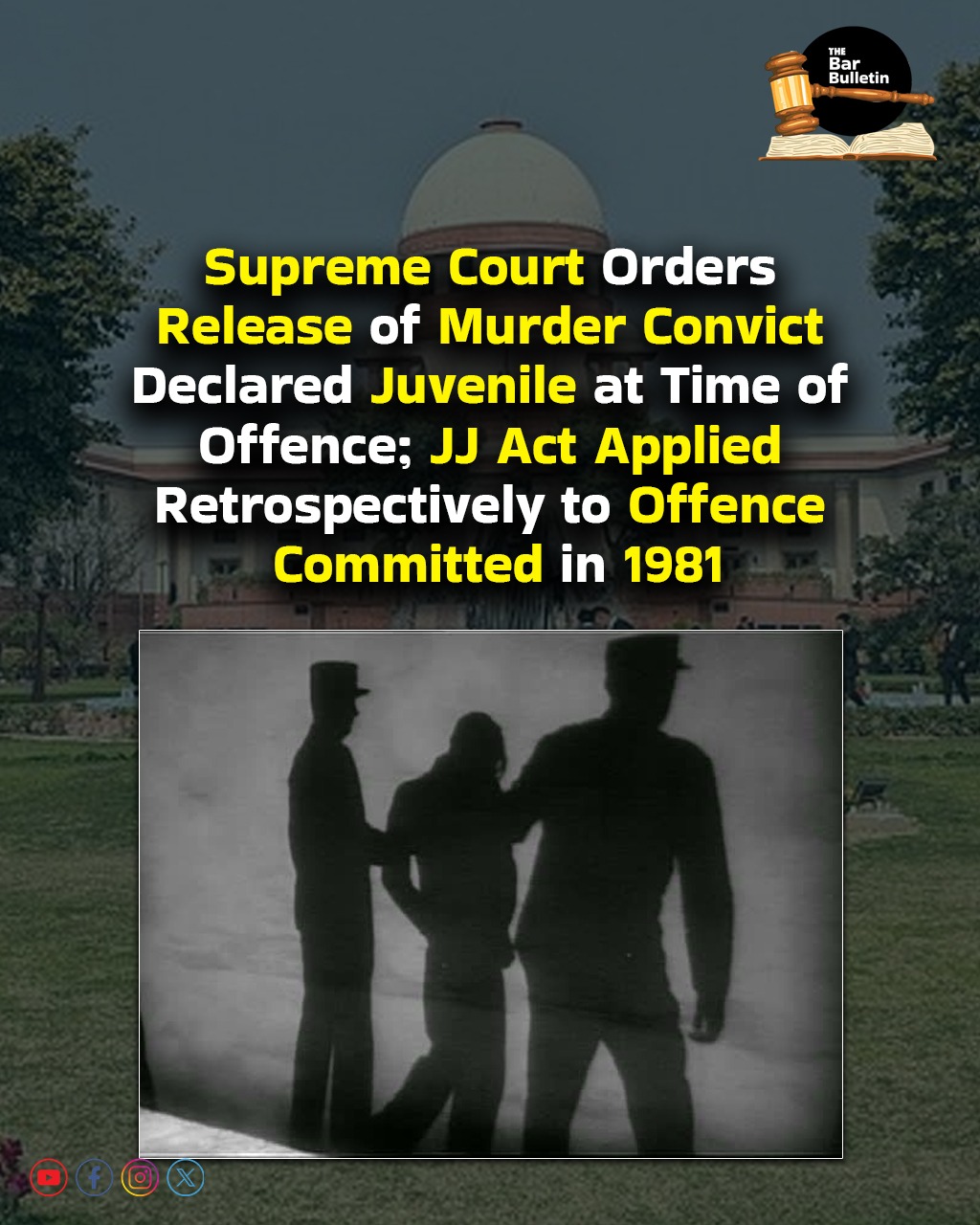Hansraj Vs. State of Uttar Pradesh, 2025 INSC 1211 [Decided on October 9, 2025]
The Supreme Court, exercising its extraordinary jurisdiction under Article 32, directed the immediate release of a murder convict who was a juvenile (aged 12 years and 5 months) on the date of the offence committed in 1981.
The Bench of Justice Dipankar Datta & Justice Augustine George Masih held that his continued detention beyond the statutory period of three years was illegal and violative of Article 21 of the Constitution.
The petitioner was convicted along with five others by the Special Additional Sessions Judge, Sultanpur, for offences under Sections 302/149, 147 and 148 of the Indian Penal Code. The Sessions Court, while finding him guilty, had recorded that he was about 16 years old and therefore entitled to the benefit of the Children’s Act, 1960. Instead of sentencing him to imprisonment, the Court had directed that he be kept in a children’s home for purposes of reformation.
On appeal, the Allahabad High Court acquitted all the accused. However, the Supreme Court, by its judgment dated 8 May 2009, reversed the acquittal and restored the conviction and sentence imposed by the Sessions Court. The petitioner absconded thereafter, and was arrested only on 19 May 2022.
In this writ petition before the Supreme Court, the petitioner sought a writ of mandamus for his release, contending that since he had been found to be a juvenile at the time of the offence, Section 7A of the Juvenile Justice (Care and Protection of Children) Act, 2000 (“JJ Act”), entitled him to the benefit of retrospective application. Petitioner argued that under Section 15(1)(g) of the JJ Act, the maximum permissible period of detention of a juvenile is three years, and continued incarceration beyond that period is unconstitutional.
The State opposed the petition on the ground that the offence occurred in 1981, and therefore the provisions of the Children’s Act, 1960, not the JJ Act, 2000, would apply. It was further argued that the petitioner, having been convicted for murder, a heinous offence, did not deserve leniency, particularly as he had evaded arrest for over a decade after his conviction was restored in 2009.
Rejecting these arguments, the Bench observed that the petitioner was indisputably 12 years and 5 months old at the time of the incident. The Court held that the petitioner had already undergone detention exceeding the maximum period of three years permissible under Section 15 of the JJ Act and that his continued incarceration was not in accordance with procedure established by law, amounting to a breach of the fundamental right to life and personal liberty under Article 21.
The Supreme Court noted that apart from one accused who wielded a knife, the petitioner was only alleged to have participated with a lathi and had been convicted on the strength of Section 149 IPC (unlawful assembly). Importantly, the Court found that Section 24 of the Children’s Act, which prohibited joint trial of a child with adults, had been violated during the trial.
Accordingly, the Court ordered the immediate release of the petitioner, if not wanted in any other case, and directed the Senior Superintendent, Central Jail, Varanasi, to act on a downloaded copy of the judgment without insisting on a certified copy.
Appearances
Mr. Parinav Gupta, Adv. for the petitioner.
Mr. Neeraj Shekar, learned counsel for Respondents.



